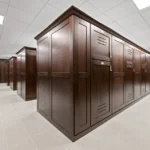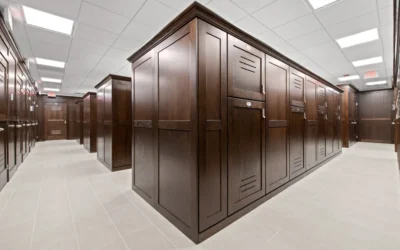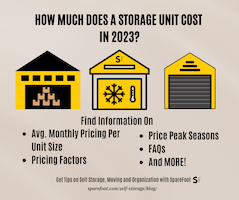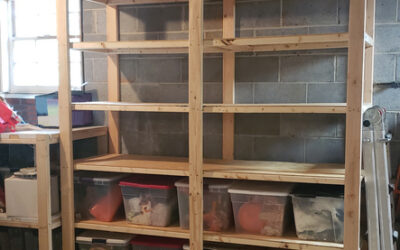President Trump’s imposition of trade tariffs – especially on steel – is causing major financial and planning headaches within the self-storage construction industry and stoking fears it could harm developments in the long run.
From builders to lenders, officials say tariffs are forcing developers to re-calculate the costs of projects, sometimes adding 5 to 10 percent to final cost estimates, largely due to higher steel prices used for the frames, doors, siding and other components of facilities.
“We’re seeing a lot people coming back to us to re-work (the numbers),” says Terry Campbell, general manager of self-storage lending at Live Oak Bank in North Carolina. “We always have contingency costs built into (financing plans), but we’ve basically had to double our contingencies. The tariffs are definitely having an impact.”
Grin and bear it
To date, builders say most developers are proceeding with planned projects, despite the higher prices for steel, which have jumped about 30 percent over the past year.
“People are still building,” said Wayne Woolsey, president of Kiwi II Construction, which installs the steel frames for new facilities. “They figure that, after all the planning and everything else, it’s less expensive to push forward than to wait.”
But the fear is that many developers may be “sitting on the sidelines,” nervously eyeing the market and building-material prices and preferring to hold off on future projects.
Nerves of steel?
“I’m worried about a slowdown,” said John Bull, owner of John Bull Builders LLC in Oregon. “We still have projects. There’s still a lot of work in the pipeline. But I’m worried about what comes after that. It’s not a good thing. People are getting nervous. The prices are getting higher and people are having to jump through a lot of hoops to get things done.”
Caesar Wright, president of Mako Steel, a California framing company, said it’s been frustrating dealing with domestic steel suppliers, who now have more leverage to negotiate better prices for themselves, now that many foreign steel suppliers are hobbled with higher tariff-related costs.
“It’s a form of domestic greed,” Wright said of higher prices being charged by U.S. suppliers. “But what can you do? The demand for steel is high, the supply is low. It’s been a challenge.”
That’s going to cost you
The Trump administration’s steel tariffs, targeting mostly Chinese steel, were imposed earlier this year and they had an immediate impact, Wright said. But he said those in the construction industry noticed steel prices slowly rising beforehand, with just the “mere talk of tariffs” making the markets jittery and driving up prices on speculation, he said.
“Just the threat of tariffs led to higher prices,” he said.
Bull, of John Bull Builders, said domestic steel prices have gotten so high that he’s reached out to foreign steel suppliers in countries not effected by the tariffs, such as those in Australia, in an attempt to find better deals. He said he hasn’t had much luck.
A hard road ahead
Campbell, of Live Oak Bank, said it will probably take until early next year for supply-chain problems to iron themselves out. U.S. steel makers simply couldn’t ramp up production fast enough to meet demand after the tariffs were imposed, he said, and steel suppliers in countries not hit by tariffs also needed time to increase production and ship products to new markets.
He said buyers of steel product must be careful. They may find what they think are good deals, but the quality of the steel may not be as good. “There may be better prices out there, but you have to be on guard,” he said.
Benjamin Hagedorn, vice president of development at NorthPoint Development, a self-storage developer based just outside of Kansas City, confirmed that it’s “getting tough” in terms of financial planning for new self-storage projects.
“It’s something that impacts every deal we do,” he said of higher steel prices. “It hits the expected rate of return on all deals.”







